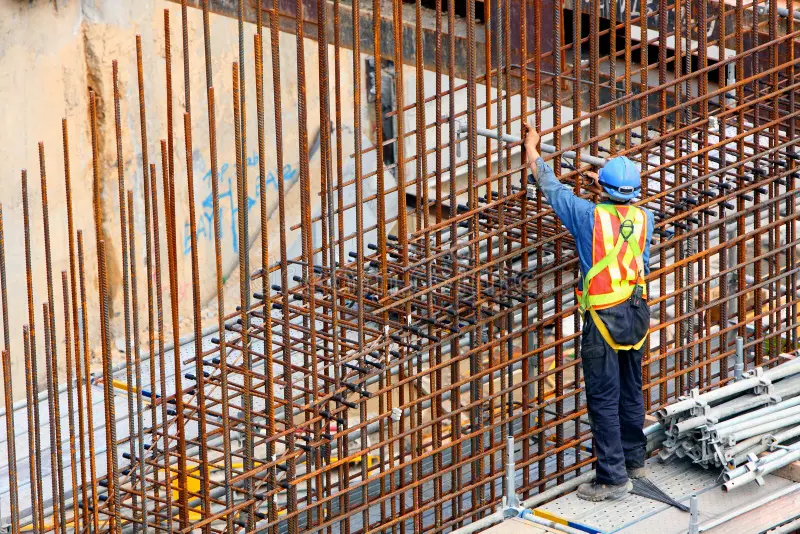Seasonal Considerations for Your Concrete Company Services in Conroe, TX

When operating a Concrete Company in Conroe, TX, understanding the seasonal considerations that impact your services is crucial for success. The climate in Conroe presents unique challenges and opportunities throughout the year, making it essential for concrete contractors to adapt their practices to meet the varying demands of each season. In this blog, we'll explore how seasonal changes can affect concrete work, the best practices for each time of year, and tips for ensuring customer satisfaction.
The Climate in Conroe, TX
Conroe, located in Southeast Texas, experiences a humid subtropical climate characterized by hot summers and mild winters. With average summer temperatures often exceeding 90°F and winter lows rarely dipping below 40°F, the local weather plays a significant role in concrete work. As concrete contractors in Conroe, TX, it's vital to recognize how these weather patterns influence concrete curing, pouring, and finishing.
Spring: A Time for Preparation and Growth
As winter gives way to spring, the weather in Conroe begins to warm, making it a popular season for construction. Here are key considerations for this time of year:
1. Ideal Temperatures for Pouring Concrete
Spring offers relatively stable temperatures, ideal for pouring concrete. However, sudden temperature fluctuations can occur, which can affect curing times. It’s important for concrete contractors in Conroe, TX, to monitor forecasts and plan pours accordingly.
2. Increased Demand for Residential Projects
Many homeowners begin planning renovations and new constructions in spring. This surge in demand presents an excellent opportunity for residential concrete contractors in Conroe, TX to showcase their services. Engaging with clients early in the season can help secure contracts before the summer rush.
3. Rain Considerations
Spring showers can be frequent in Conroe, which might delay projects. Concrete should not be poured if rain is forecasted within a few hours. Implementing waterproof coverings and ensuring proper drainage can mitigate the impact of unexpected rain.
Summer: Managing Heat and Humidity
The summer months in Conroe can be intense, with high temperatures and humidity levels. This season requires specific strategies for maintaining the quality of concrete work.
1. Heat Effects on Concrete
High temperatures can cause rapid evaporation of moisture, leading to problems such as cracking and improper curing. To combat this, concrete companies in Conroe, TX, should:
- Schedule pours during cooler parts of the day, such as early morning or late afternoon.
- Use retarders to slow down the setting time of the concrete.
- Implement curing methods like covering the slab with wet burlap or using curing compounds to retain moisture.
2. Handling Client Expectations
Summer is a popular time for outdoor projects. Be proactive in managing client expectations regarding timelines and potential delays due to heat-related issues. Clear communication can build trust and understanding.
3. Outdoor Features and Landscaping
With the increased desire for outdoor living spaces, many homeowners are looking to install patios, driveways, and decorative concrete features. This is a great time for concrete construction companies in Conroe, TX, to offer specialized services that cater to summer trends.
Fall: A Time for Maintenance and Reflection
As the weather cools down, fall becomes a transitional season that can impact concrete projects in various ways.
1. Optimal Pouring Conditions
Fall often provides mild temperatures ideal for concrete work. This is a great time to focus on larger projects that require extended curing times. Concrete companies in Conroe, TX, should leverage this period for both new installations and repairs.
2. Preparing for Winter
As winter approaches, it's vital to begin preparing clients for potential issues related to freezing temperatures. Discuss with homeowners the importance of sealing their concrete to prevent water infiltration, which can lead to damage when temperatures drop.
3. Planning for the Off-Season
The fall season can also be a time to reflect on the year’s successes and plan for the next. Concrete contractors in Conroe, TX, should consider marketing strategies to maintain visibility during the slower winter months.
Winter: Challenges and Opportunities
Winter in Conroe, while mild compared to other regions, can still present challenges for concrete work.
1. Understanding Cold Weather Concrete Work
While temperatures rarely fall below freezing in Conroe, it's still crucial for concrete contractors to understand how cold weather can affect their work. Concrete should be poured at temperatures above 40°F, and if there's a risk of freezing, measures should be taken:
- Use heated enclosures or blankets to maintain warmth.
- Consider using accelerators to speed up curing times.
2. Protecting Existing Concrete
Winter weather can be harsh on existing concrete surfaces. Offer services that focus on maintenance and protection, such as sealing and repair, to ensure the longevity of clients’ concrete structures.
3. Marketing During the Off-Season
While winter may slow down new construction, it can be an excellent time to market your maintenance and repair services. Highlight the importance of protecting investments and maintaining concrete surfaces during this season.
Year-Round Best Practices for Concrete Companies
Regardless of the season, certain best practices should always be upheld by concrete contractors in Conroe, TX, to ensure quality and client satisfaction.
1. Educating Clients
Educate your clients about the impacts of weather on concrete work. This can foster trust and lead to informed decision-making, ensuring they understand the value of your services regardless of the season.
2. Investing in Quality Materials
Using high-quality concrete mixes and additives can enhance performance in varying conditions. Stay informed about advancements in concrete technology to provide the best options for your clients.
3. Emphasizing Safety
Concrete work can be hazardous, especially in extreme weather conditions. Implement comprehensive safety protocols and ensure that your crew is trained to handle adverse weather situations effectively.
4. Building Strong Relationships
Develop strong relationships with suppliers, subcontractors, and clients. This network can be invaluable when navigating seasonal challenges and can help ensure that you have the resources you need during peak times.
What's Your Reaction?
















